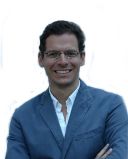
Anxiety
Philosopher Alain de Botton on "Status Anxiety"
The famous philosopher answers some questions for There Are Free Lunches.
Posted May 1, 2012

Alain de Botton, the most-read philosopher alive, has decided to answer some questions about his wonderful book Status Anxiety. The book focuses on the anxiety prevalent in many modern societies to be Number One. It also shows how this can be a win-lose socially dysfunctional game, as your social position is always dependent on where others stand.
1. What do you think about the name of this blog—"There Are Free Lunches"?
I love the name of your blog.
2. José Saramago, the only Portuguese writer to win a Nobel Prize, used to say "I live restless and I write to unrest." What was your unrest in writing the book Status Anxiety?
With my book, I wanted to define a new disease as I saw it in my life and in that of others close to me. Status anxiety is a worry about our standing in the world, whether we’re going up or down, whether we’re winners or losers. We care about our status for a simple reason: because most people tend to be nice to us according to the amount of status we have: if they hear we’ve been promoted, there’ll be a little more energy in their smile; if we are sacked, they’ll pretend not to have seen us. Ultimately, we worry about having no status because we’re not good at remaining confident about ourselves if other people don’t seem to like or respect us very much. Our ‘ego’ or self-conception could be pictured as a leaking balloon, forever requiring external love to remain inflated and vulnerable to the smallest pinpricks of neglect: we rely on signs of respect from the world to feel acceptable to ourselves.
3. In your book, you show us that some of the founding ideas of the capitalist ideology, such as meritocracy and the invisible hand, are also the causes of the status anxiety phenomena, and a source of despair to society. Despite all the pain they can cause, why are these ideas still so embraced in the world today?
Status anxiety is worse than ever, because the possibilities for achievement (sexual, financial, professional) seem to be greater than ever. There are so many more things we expect if we’re not to judge ourselves as "losers." We are constantly surrounded by stories of people who have made it. For most of history, an opposite assumption held sway: low expectations were viewed as both normal and wise. Only a very few ever aspired to wealth and fulfilment. The majority knew well enough that they were condemned to exploitation and resignation. Of course, it remains highly unlikely that we will today ever reach the pinnacle of society. It is perhaps as unlikely that we could rival the success of Bill Gates as that we could in the seventeenth century have become as powerful as Louis XIV. Unfortunately though, it no longer feels unlikely; depending on the magazines one reads, it can in fact seem absurd that one hasn’t already managed to have it all.
4. What was the outcome from publishing your book that pleases you the most?
The book has helped to make the concept seem universal. After all, even Bill Gates will suffer from status anxiety. Why? Because he compares himself to his own peer group. We all do this, and that’s why we end up feeling we lack things even though we’re so much better off than people ever were in the past. It’s not that we’re especially ungrateful, it’s just we don’t judge ourselves in relation to people far away. We cannot be cheered for long by how prosperous we are in historical or geographical terms. We will only take ourselves to be fortunate when we have as much as, or more than, the people we grow up with, work alongside, have as friends and identify with in the public realm. That’s why the best way to feel successful is to choose friends who are just that little bit less successful than you…
5. Do you often hear laughter, when your jokes lack bite?
I like Seneca's statement: "What need is there to weep over parts of life? The whole of it calls for tears."

